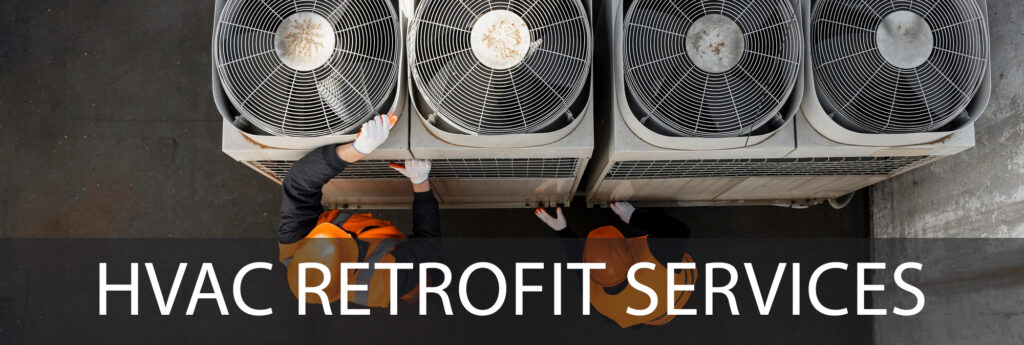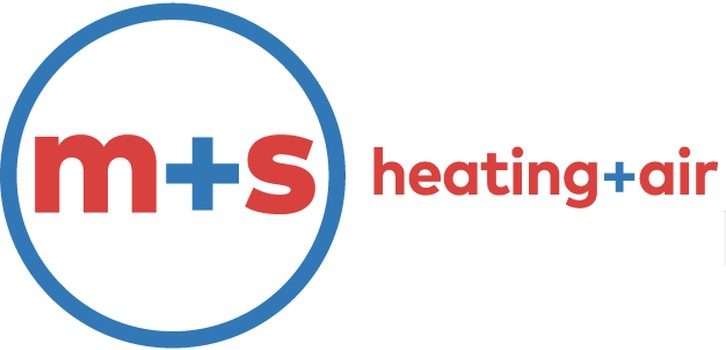
Commercial HVAC Retrofit Services
Even the best commercial HVAC will eventually begin to fail after years of use. As the demands on commercial air conditioning systems continue to rise, business owners will ultimately find themselves at a crossroads: whether to retrofit the existing HVAC system or to opt for a complete replacement. This decision hinges on several crucial factors, with cost, energy savings, and potential disruption to business activities topping the list.
Cost Considerations
One of the primary factors influencing the decision between commercial air conditioning retrofit and replacement is the cost associated with each option. Retrofitting offers a more budget-friendly alternative, allowing businesses to upgrade specific components of their existing system rather than investing in an entirely new HVAC system. This can be particularly appealing for businesses operating on a tight budget or those seeking a cost-effective solution to extend the lifespan of their HVAC equipment.
On the other hand, while a complete replacement may involve a higher upfront investment, it could lead to long-term cost savings. Modern HVAC systems are designed with energy-efficient technologies that can significantly reduce operational expenses over time. Businesses must weigh the immediate financial impact against the potential for greater efficiency and reduced energy consumption in the future.
Energy Savings
People are often surprised by the monthly savings that can be achieved – with both replacing a system and retrofitting an HVAC system. Energy efficiency has become a focal point in the industry, driven by both environmental concerns and the economic benefits of reduced energy consumption. When contemplating a retrofit or replacement, evaluating the energy savings potential is paramount.
Retrofitting allows businesses to integrate new, energy-efficient components into their existing system, enhancing performance without the need for a complete overhaul. Upgrading to more advanced controls, motors, and compressors can result in notable energy savings, providing a greener and more cost-effective solution.
However, it’s essential to recognize that modern HVAC systems often come equipped with cutting-edge technologies designed to meet stringent energy efficiency standards. Investing in a new system may yield more substantial energy savings in the long run, offering businesses a chance to align with sustainability goals and potentially qualify for energy-related incentives.
Disruption to Business Activities
Disruption to daily operations is a critical concern for business owners contemplating HVAC upgrades. Have business disruptions become too frequent? Or are you worried about the disruption that might occur during a replacement or retrofitting? The decision between retrofitting and replacement often boils down to the extent of disruption each option imposes on the workplace.
Retrofitting is generally less intrusive, as it involves targeted improvements to specific components of the existing system. This can be particularly advantageous for businesses that cannot afford extended downtime or those operating in sectors where continuous operation is essential.
Conversely, a complete replacement may necessitate a temporary shutdown of HVAC services, impacting the overall functioning of the business. However, it’s crucial to note that advancements in installation techniques and project management have mitigated some of the potential disruptions associated with system replacements. Businesses should work closely with our experienced HVAC professionals to develop a strategic plan that minimizes downtime and ensures a smooth transition.
Getting Started
In the realm of commercial air conditioning, the decision to retrofit or replace an existing HVAC system requires a nuanced consideration of cost, energy savings, and potential disruption to business activities. While retrofitting provides a cost-effective means of enhancing system performance, a complete replacement offers the promise of long-term energy efficiency and environmental sustainability. Business owners must weigh these factors carefully, consulting with HVAC professionals to tailor a solution that aligns with their budget, operational needs, and sustainability objectives. In the end, making an informed decision ensures not only comfort within the workspace but also the longevity and efficiency of the HVAC system for years to come.

